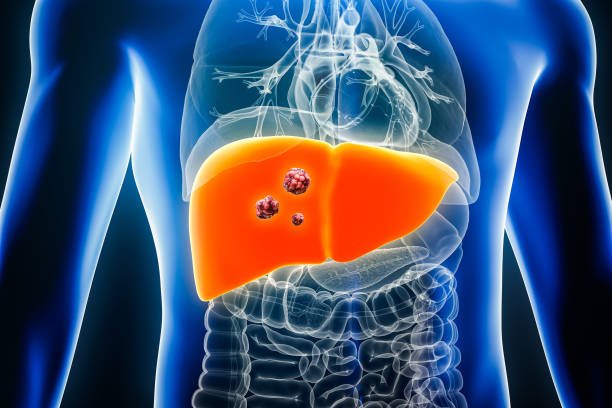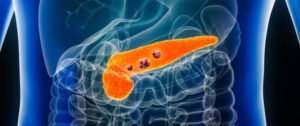
Can Coughs and Colds Turn Into Liver Cancer? ! Stop Reading and Listening to the 4 Major Symptoms of Liver Cancer, and Avoid These 2 Things to Avoid Suffering From Liver Cancer
Modern people are busy at work and often need to drink and socialize. In the long run, liver cancer will come to their doorstep. Is there any way to prevent liver cancer? What are the causes of liver cancer? Let us take you to understand the big and small things about liver cancer.
Liver cancer symptoms are easy to ignore and cancer cell metastasis is already in the terminal stage
Primary malignant tumors of the liver are the most common liver cancers, and most liver cancers are formed by mutations in liver cells. However, since there are no pain-sensing nerves in the liver, most liver cancer patients have not obvious initial symptoms. They may only have cold-like symptoms such as cough, fever, dizziness, etc. Therefore, they neglect to seek medical treatment and miss the opportunity for treatment.
As liver cancer gradually worsens, symptoms such as abdominal pain and jaundice in the whites of the eyes will gradually appear, and the difficulty of treatment will increase significantly. Other possible symptoms include:
- Upper abdominal pain:
If the liver tumor grows on the surface of the liver or spreads from the inside of the liver to the surface, it may stimulate the pain-sensing nerves in the liver capsule, causing upper abdominal pain. - Fatigue, loss of appetite, and weight loss:
When the tumor grows rapidly, it will cause fatigue and loss of appetite, leading to rapid weight loss. This is a symptom of relatively advanced liver cancer. - Jaundice:
If liver cancer growing near the bile duct invades the common hepatic duct or common bile duct, it will cause the intrahepatic bile duct to expand, causing jaundice symptoms, and also leading to excessive liver tumor size. - Lower limb edema, ascites, and hematemesis:
When tumors grow near the hepatic portal vein, it will cause an increase in hepatic portal venous pressure, causing lower limb edema and ascites. If the hepatic portal vein blood flow is blocked, causing blood to flow out from the esophageal veins, a venous aneurysm will form. If the esophageal venous aneurysm unfortunately ruptures and bleeds, in mild cases there will be bloody stools, in severe cases a large amount of blood may be vomited, and immediate medical emergency treatment is required.
In addition, if cancer cells metastasize to other parts, they will have different symptoms. For example, if they metastasize to the brain, they will cause headaches and nausea; if they metastasize to the lungs, they will cause coughing and vomiting blood. When symptoms of cancer cell metastases appear, it is usually already in the final stage of liver cancer.

Why do you get liver cancer? Pay attention to these 4 reasons
According to the Academic Foundation for Liver Disease Prevention and Treatment, the main causes of liver cancer are hepatitis B and hepatitis C, of which hepatitis B accounts for 60%-70%. In addition, modern people’s abnormal diet, overtime work and drinking and socializing are also causes of liver cancer. The following are the four main causes of liver cancer:
- Cirrhosis:
Patients with hepatitis B and hepatitis C are high-risk groups for liver cancer. Some patients will gradually evolve from chronic hepatitis to cirrhosis, eventually leading to liver cancer. - Aflatoxin:
Aflatoxin is a mycotoxin with strong biotoxicity. It is mostly hidden in moldy peanuts, corn, and soybeans. Long-term consumption of food contaminated with aflatoxin can lead to acute or chronic liver disease, especially if the person is B. For patients with hepatitis C, consuming foods containing aflatoxin will further increase the risk of liver cancer. - Alcoholism and smoking:
Consuming more than 50-70 grams of alcoholic beverages per day will increase the risk of liver cancer. According to a study on Greek liver cancer patients, smoking more than 2 packs per day will also increase the risk of liver cancer by 2.8 times. . - Heredity:
If a first-class relative has liver cancer, the chance of the offspring developing liver cancer is 3 to 5 times higher than the average person. Taking Taiwan as an example, in the early days, many mothers who were infected with hepatitis were pregnant and gave birth to their children, resulting in vertical infection between mother and child. The newborns were hepatitis B carriers as soon as they were born. Fortunately, after the comprehensive implementation of hepatitis vaccination for newborns, the incidence of liver cancer in children has dropped significantly.

How to prevent liver cancer? Regularly track and quit smoking and alcohol
Liver cancer is a very scary disease. By the time symptoms appear, it is already in the final stage. Therefore, early prevention and regular check-ups are the key:
- Regular examinations:
Patients with hepatitis B and hepatitis C must return regularly for abdominal ultrasound and blood draws to check for precancerous lesions in the liver. - Avoid eating foods that are prone to produce aflatoxin:
moldy peanuts, corn, etc. are prone to produce aflatoxin, and aflatoxin will increase the chance of contracting hepatitis B and greatly increase the chance of transforming into liver cancer. - Quit smoking and drinking:
Smoking and drinking can easily lead to cirrhosis of the liver. Therefore, quitting smoking and drinking as soon as possible can avoid the problems of cirrhosis and liver cancer.












